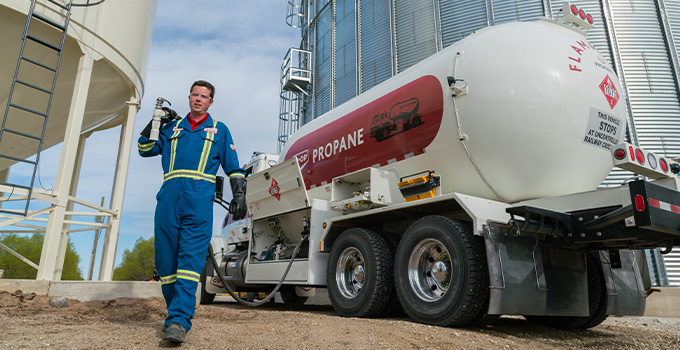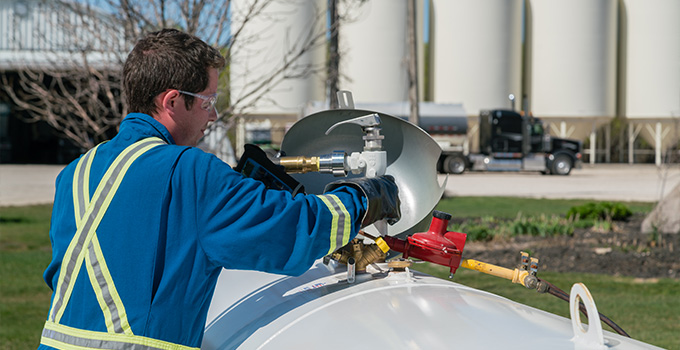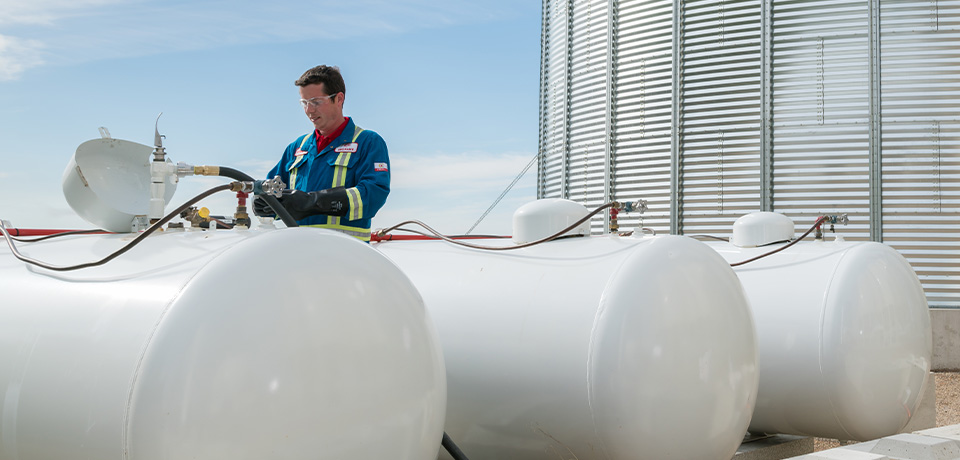Often when people think of propane, they think of fuelling the backyard barbecue – but many of us know it’s used for much more than that. Propane is used to heat homes, shops and barns as well as in the operation of fuel-grain dryers, irrigation systems and generators.

Because improperly handled or stored propane can be a risk to your health and the health of those around you, different areas of legislation and regulations – federal, provincial and municipal –exist.
Trying to understand the number of safety measures that have to be put in place can be overwhelming. Here are a few key things you need to know:
- Compliance starts with the installation of the tank. Propane storage, handling, contractors, equipment and appliances fall under provincial jurisdiction.
- It is the owner’s responsibility to ensure all tanks comply. Because of that, many people choose to rent tanks rather than own them: this gives them peace of mind that their tank is compliant. Your local Fuel Team member can provide you with a list of what to look for in a compliant tank.
- During its lifecycle, your tank should undergo several key maintenance reviews . Co-op will complete a visual inspection of the pressure-relief valve in your rental tank every five years. For tanks 2,500 USWG or less, the pressure-relief valve in the tank must be replaced every 25 years.
- Staying up-to-date on changing codes is important. For example, take note of the two following updated regulations:
- Propane suppliers are no longer permitted to fill propane tanks on portable trailers. In order to be filled, all tanks must be on stationary, permanent blocks (such as solid foundations of steel or concrete).
- The maximum allowable working pressure (MAWP) of tanks must be a minimum 250 PSIG (1,750 kPa) in order to be refilled.

Cutting corners is never worth it and could put you and your family’s safety at risk. That’s why it’s important to lean on a support network of trusted people who can help navigate questions you might have about safe propane practices. Co-op employs trained professionals who provide full-service installations for bulk propane applications, including locating lines and pulling the appropriate permits.
Ask your local Co-op Fuel Team member today for more information on how to be propane safe.

